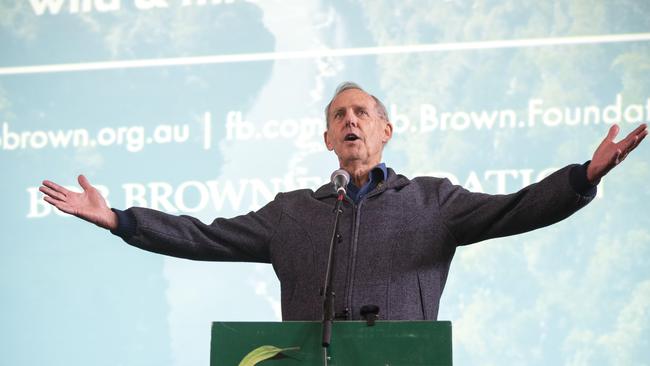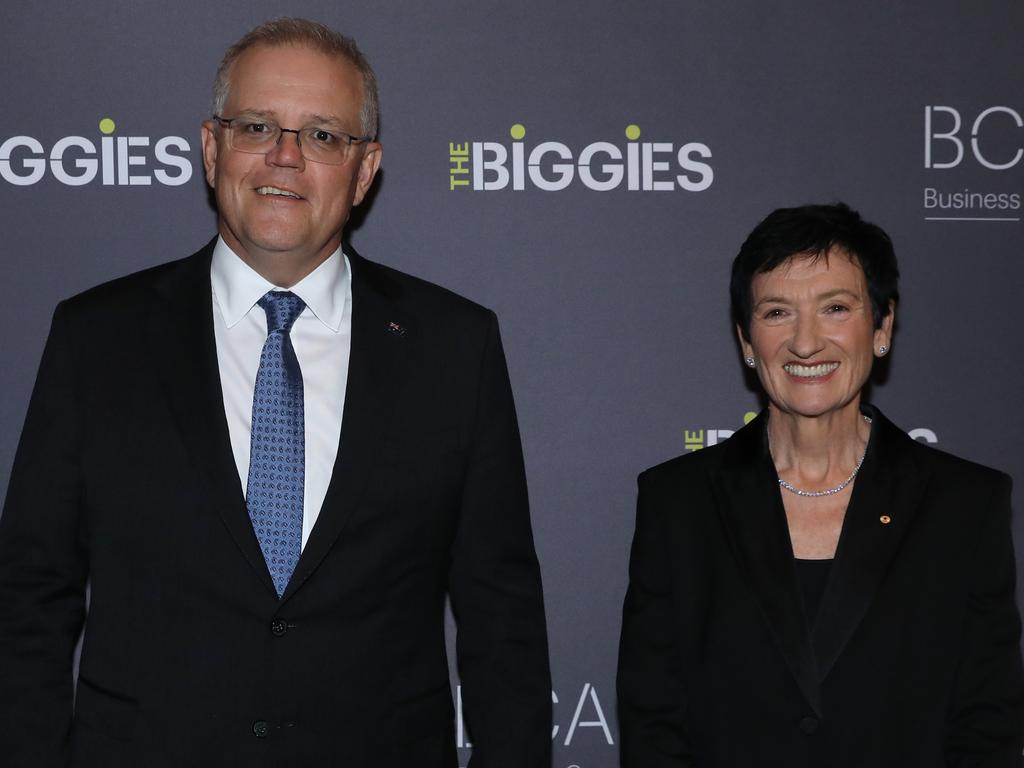Our political record on climate is appalling
As the Nats consider whether or not to support net-zero, it’s worth reflecting on just how comprehensively Australia has butchered its response to climate change.

To be sure, we can blame conservatives for the failures, including media commentators whose stock and trade is stoking divisions. But the left and the centre are also at fault, and not only because of failures to win arguments. The perfect has been the enemy of the good too many times when it comes to designing emission-reduction policies. Let’s not forget that – as worthy as the debate over what emissions targets should now look like is – the most important debate is how we achieve those targets once they are agreed upon.
Without carbon pricing in some form, if we do get emissions down it will only be because of the actions of state governments, private citizens and the private sector. Or because of reduced activity courtesy of Covid. For the most part, the commonwealth has been utterly useless.
At the 2007, election both John Howard and Kevin Rudd campaigned on a commitment to introduce an emissions trading scheme. Yes that’s right, 14 years ago there was bipartisan support for the sort of market mechanism all sides in a liberal democracy should be able to support. While Howard’s model was contingent on global action, both major parties (including the Nationals as part of the then government) wanted emissions trading as the best way to cut emissions. When Rudd won, as expected he immediately ratified the Kyoto agreement (largely symbolic) and began work on what an ETS in practice might look like (far more complicated and important).
Keep in mind that all of this came after the publication of the Stern Review, a 700-page report released a year earlier by conservative economist Nicolas Stern, commissioned by the British government. It reviewed the profound economic challenges of climate change and the need for environmental taxes to address these challenges. Its chief recommendation was early decisive action, because acting late would be both environmentally and economically devastating.
Is it any wonder younger generations are aghast with where we are now at? Feeling let down by anyone with a modicum of political power over the past decade and a half. Including conservatives, when one of their own (albeit overseas) was the author of something so important.
The ETS Rudd took to the parliament to be endorsed and legislated was a reasonable enough first step towards pricing carbon. While Brendan Nelson as Liberal leader started to grumble about what was on offer, he was soon replaced by Malcolm Turnbull who was certainly on board with Rudd’s ETS, albeit proposing subtle amendments to improve the scheme.
But guess what? Not only was Turnbull outflanked on his right by conservatives, including the now secretary-general of the OECD Mathias Cormann, a sudden fan of the need for action, but business and mining interests were also lined up against Rudd’s ETS – which is easy to forget given how supportive they all are now when it comes to emissions targets. Even the Greens wouldn’t support Rudd’s ETS, because they didn’t think it went far enough, holding out for something that would move more quickly to reduce emissions. If they hadn’t let the perfect be the enemy of the good, Australia would have introduced an ETS at a time when it was non-controversial to do so, helping to restructure our broken taxation system and embedding a mechanism which could be dialled up or down to help reduce emissions as necessary – indeed, as targets were set and reset.
Knowing that they could kill two birds with one stone, conservatives baulked and dumped Turnbull in favour of Tony Abbott, who infamously thought climate change was “absolute crap”, killing off a bipartisan ETS in the process. The policy still could have been legislated if Bob Brown’s Greens weren’t so puritanical, but alas they were. And it still could have been legislated if Rudd had an ounce of political courage and called a double dissolution election on the issue, but he didn’t. In the end Rudd was more concerned about political survival than “the greatest moral challenge of our time”, as he put it.
Speaking of courage, if Labor had an ounce of it they would never have dumped Rudd when he fell behind Abbott and the Coalition in a solitary Newspoll in 2010, replacing him with Julia Gillard. And if Gillard had an ounce of political nous she wouldn’t have ruled out a carbon tax during the ensuing election campaign, only to backflip and seek to introduce a fixed carbon price (otherwise known as a carbon tax) before transitioning to an ETS once re-elected.
After that, pricing carbon became synonymous with a broken election pledge. The damage was done. Abbott – arguably the best opposition leader in Australian history if the yardstick is tearing down your opponents – showed no mercy when criticising the Labor government, and its internal leadership divisions overshadowed any policy achievements, including finally legislating carbon pricing years after Stern literally wrote the book on why it was so important to do so in a timely manner.
Abbott won a landslide election in 2013 promising to repeal the carbon tax, and even though he was quickly on the nose allowing Team Turnbull to find the numbers to remove him less than two years after becoming PM. The deal to garner those numbers required Turnbull to temper his climate change ambitions. In other words, naked political ambition became more important. Australia thus found itself governed by one of the first federal MPs to seriously press for a market mechanism to address climate change, but he never seriously did so. A little like if Gough Whitlam had become PM in 1972 but decided not to pursue social reforms, lest doing so was politically risky.
In the years that followed, the mainstream switched off to the importance of climate change action, and the conservatives were happy to play the (politically successful) role of villains, warning about the costs of action rather than the costs (and opportunity costs) of inaction.
Which brings us to where we are now. Glasgow is important, yes, but only because it represents a first step towards emission-reduction targets scientists tell us are so necessary to stave off the worst effects of climate change. Only then will the heavy lifting begin trying to actually achieve the targets. Doing so will most likely require a return to the debilitating debate over pricing carbon.
Let’s hope the sequel is better than the original.
Peter van Onselen is the political editor at the Ten Network and a professor of politics and public policy at the University of Western Australia and Griffith University.






As the Nationals consider whether or not to support a net-zero emissions target for 2050, ahead of Scott Morrison’s inevitable departure for Glasgow later this month, it’s worth reflecting on just how comprehensively Australia has butchered its response to climate change action up until now. And not just recently.